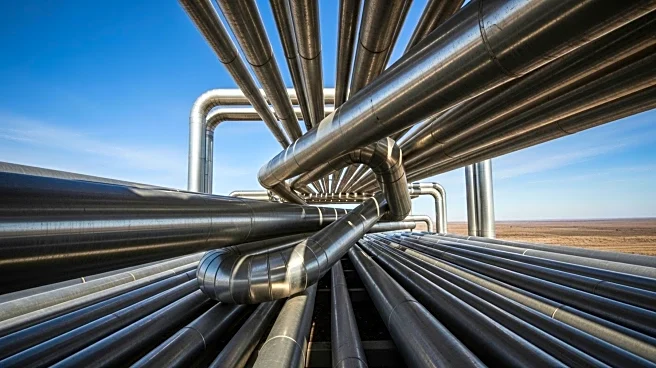What's Happening?
Major oil companies are warning of a potential oversupply in the LNG market, particularly in the United States. This warning follows a prediction by Goldman Sachs of an oil market surplus by 2026, with oil prices potentially dropping to the $50s per barrel. TotalEnergies' CEO Patrick Pouyanné has expressed concerns about the rapid expansion of LNG plants in the U.S., which could lead to a long-lasting glut. Texas-based NextDecade Corp. has announced a positive final investment decision on Train 4 at its Rio Grande LNG plant, with a planned capacity of 48 million tonnes per annum. The project is expected to cost approximately $6.7 billion, with TotalEnergies holding a 10% stake.
Why It's Important?
The potential LNG supply glut could have significant implications for the U.S. energy sector and global LNG markets. An oversupply could lead to lower LNG prices, affecting profitability for producers and potentially leading to reduced investment in new projects. This situation could benefit LNG importers by providing access to cheaper energy sources. However, it also poses risks for U.S. LNG producers, who may face increased competition and pressure on margins. The development highlights the need for careful planning and market analysis to avoid overproduction and ensure sustainable growth in the LNG sector.
What's Next?
As the U.S. continues to expand its LNG production capacity, stakeholders will need to closely monitor market conditions to avoid an oversupply situation. Companies may need to adjust their production plans and explore new markets to maintain profitability. Additionally, regulatory bodies may play a role in managing the pace of LNG development to prevent market imbalances. The situation underscores the importance of strategic planning and collaboration among industry players to navigate potential challenges in the LNG market.









